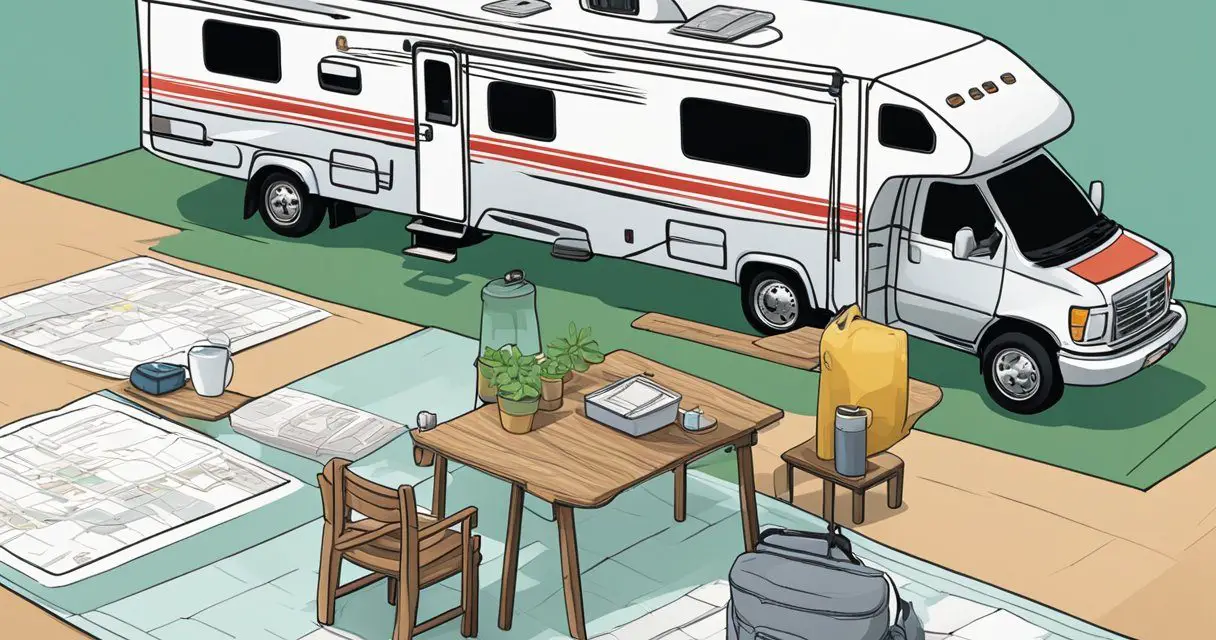Towing a car with an RV can greatly enhance the flexibility and convenience of your trips, allowing you to explore more destinations without the hassle of driving a massive vehicle everywhere you go. Whether you’re a seasoned traveler or new to the RV lifestyle, it’s essential to be well-prepared before you hit the road with a towed vehicle. Knowing the right techniques and ensuring proper safety measures can make your travel experience more enjoyable and stress-free.
When it comes to towing a car behind your RV, there are several key considerations to keep in mind. From understanding the types of towing equipment to ensuring your vehicle’s safety on the road, each aspect can significantly impact your journey. With the right knowledge and preparation, you can avoid common pitfalls and ensure a smooth and enjoyable trip.
1) Check Weight Limits
Before setting off on your RV trip, it’s crucial to check the weight limits. Each RV has a specified Gross Vehicle Weight Rating (GVWR) which includes its own weight and everything inside it—passengers, gear, and fluids.
Understand the towing capacity of both the RV and the car being towed. This includes the Gross Combined Weight Rating (GCWR), which is the maximum total weight of the RV and the towed vehicle combined.
Look at the car’s owner’s manual or the sticker on the driver’s door to find the Gross Vehicle Weight Rating (GVWR) and other relevant numbers. Exceeding any of these limits can compromise safety and performance.
2) Invest in a Good Tow Bar
Would you like to save this article?
A tow bar is essential for flat towing a car behind an RV. It’s important to invest in a high-quality tow bar to ensure safety and reliability on the road.
The tow bar connects the RV and the towed vehicle. It attaches to the underside of the RV’s frame and links to the vehicle’s baseplate.
Choosing a tow bar from reputable brands like Roadmaster, Blue Ox, or Demco can be a good idea. These brands are known for their durability and ease of use.
A good tow bar can last many years, making it a valuable investment for frequent travelers.
3) Inspect Hitches Regularly
Regular hitch inspections are essential for safe towing. Before every trip, make sure all hitch components are in good condition. Look for signs of wear, rust, or cracks on the hitch and its mounting points.
Verify that all bolts and pins are securely fastened. Loose hardware can lead to dangerous situations on the road. Also, check the electrical connections to ensure all lights and signals are functioning properly.
Pay attention to coupler latches and safety chains. They should engage securely and show no signs of damage. Properly maintained hitches contribute significantly to the overall safety and comfort of your towing experience.
4) Practice Safe Hooking
Before hitting the road, it’s essential to master the art of hooking up your car to your RV. Always ensure the coupler is securely latched and the safety chains are properly attached.
Checking the equalizing bars for proper adjustment is crucial. These bars help distribute the weight, making the towing experience smoother and safer.
Don’t forget to verify that the brakes, turn signals, marker lights, and brake lights are all functioning. Practicing in a large, empty space can help familiarize with the vehicle’s handling and improve confidence.
Repetition makes perfect. Regular practice of hitching, unhitching, and maneuvering helps build the required skills for safe towing.
Safety first!
5) Avoid Overloading
Overloading an RV can lead to serious safety issues. It’s important to know your RV’s Gross Combined Weight Rating (GCWR). This is the maximum weight your RV can safely handle, including the weight of the RV itself, the car, passengers, and any cargo.
He needs to ensure that the total weight never exceeds this limit. Both the RV and the car’s owner’s manuals will have information on weight limits.
She should also be aware of the RV’s rated towing and hitch capacities. It is best to stay within these limits to prevent any mechanical failures or accidents on the road.
They must distribute the weight evenly. Uneven weight distribution can make it harder to control the RV, especially in windy conditions or while braking. Regular checks can help ensure safe and smooth towing.










